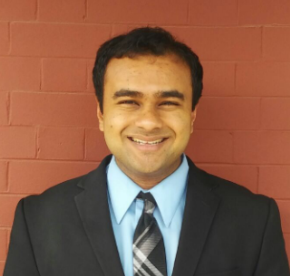Get to Know Sharath Patil
Public Citizen News / May-June 2020
By Eric Kopp

This article appeared in the May/June 2020 edition of Public Citizen News. Download the full edition here.
Passionate about international trade law and policy, Sharath Patil has worked as an agricultural trade policy intern for the Delegation of the European Union to the United States and as a judicial intern for the U.S. Court of International Trade, returned to the Delegation as an international trade analyst, then became a summer intern at Trade Pacific, PLLC, an international trade law firm. Patil’s next move was in July 2019, when he joined Public Citizen as the research director at Public Citizen’s Global Trade Watch.
Although his family is from southern India, Patil grew up in Sahuarita, Ariz., right outside Tucson. He graduated with a bachelor’s degree in supply chain management from Arizona State University in 2015. After obtaining a law degree from the University of Oregon School of Law in 2018, Patil moved to Washington, D.C., to pursue a career that would allow him to influence the “well-being of our own country.”
Q: What drew you to your major, supply chain management, and the topic of trade when you were in college?
Patil: I think it’s interesting how everything we wear, eat and drive comes from dozens of countries and how that demonstrates the interconnectedness of humanity. People have been trading since time immemorial, and I find trade in its purest form to be an important pathway toward peace and understanding. I found supply chain management and global logistics to be an interesting way to study the world.
Q: How did your time working in governmental commercial diplomacy influence your view of the relationship between trade and foreign policy?
Patil: I learned that diplomats often have considerable influence in the execution of international trade policy objectives, and that embassies can serve powerful roles in strengthening and improving trade relationships.
Q: What made you switch from the governmental and legal sectors to the nonprofit advocacy world?
Patil: After I spent a few years learning the ropes, I was grateful to be able to switch over to the nonprofit advocacy world and use my skillsets to do good in the world. I find working on behalf of the interests of working people and the planet to be very meaningful and rewarding.
Q: How does that previous work inform what you do at Public Citizen?
Patil: I think trade is a strange policy area because certain aspects of it can be so technical, and the jargon used so limited to wonks. I think before advocating policy changes, it is important to have a deep understanding of how things work. My previous work experiences provided me with research skills and a knowledge base that I use daily in my work.
Q: How has your recent admission to the District of Columbia Bar changed your work?
Patil: Being an attorney who also works heavily in quantitative research has helped me make much stronger arguments and back up all policy proposals with data. I think the ability to combine those two skillsets is critical.
Q: What do you do to destress?
Patil: An important part of my life is my Baha’i faith. In Washington, D.C., the Baha’i community is warm and actively engaged in community service projects. Every Saturday, I enjoy hosting a dinner and discussion in my home where youth from the neighborhood come over, and we brainstorm service projects and have meaningful conversations.